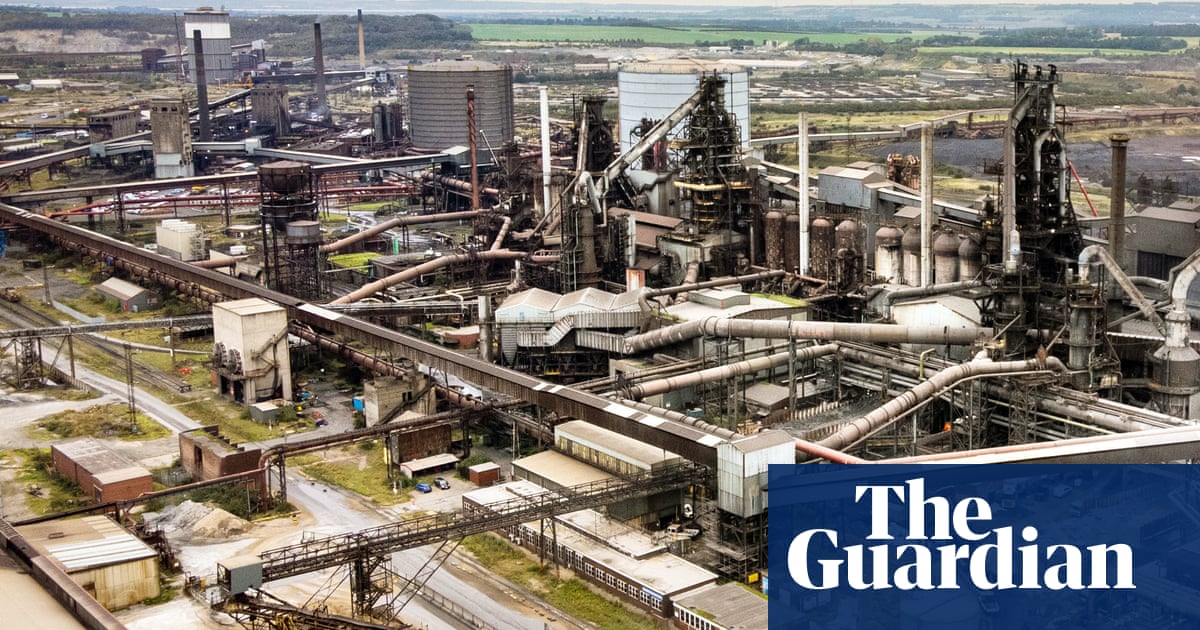Ministers are reportedly considering legislation to relieveBritish Steelof debts that have risen to nearly £1bn, as the government considers how best to prepare the Scunthorpe steelworks for sale.
The government took control of the business last month after it said its Chinese owner, Jingye Steel, planned to close the plant within days. The move required emergency legislation that was passed in a historicrecall of parliament.
Jingye remains the legal owner of British Steel, despite the takeover, and is owed money by the company. Those debts would probably have been wiped out in a liquidation. However, the Labour government prevented that from happening, fearingas many as 2,700 job cutsand the symbolic loss of the ability to produce steel from iron ore in Britain.
British Steel owed £711m to Jingye businesses at the end of December 2023, according to its last filed accounts. Net debt has risen to just under £1bn in the year and a half since then, government and industry sources told the Financial Times. The government is considering ways to wipe out that debt, including new legislation, the FT reported.
Legislation to wipe out debts would be highly controversial, as it would in effect destroy a privately held asset. It could make foreign investors more wary of investing in the UK.
A debt-free British Steel would be a much more attractive prospect for a possible buyer for Scunthorpe, where two blast furnaces are operating. It is thought that the government would provide hundreds of millions of pounds for investment in a new electric arc furnace to produce much cleaner steel. That would secure Scunthorpe’s longer-term future.
The industry minister, Sarah Jones, said on Tuesday the government had so far provided £94m to British Steel in working capital needed to buy raw materials and pay salaries.
Jingye bought British Steel in early 2020, after Boris Johnson’s Conservative governmentbore the cost of running the companyfor several months during the search for a buyer. The previous owner, Greybull Capital, an investment firm, had walked away.
The Jingye takeover, completed in March 2020, came just as the Covid pandemic began to disrupt global supply chains. The Scunthorpe plant was losing about £700,000 a day when Jingye announced plans to close it.
The government had offered Jingye £500m in state aid to make the switch to electric arc furnaces, but the company, whose other steel facilities are all in China, asked for significantly more.
Sign up toBusiness Today
Get set for the working day – we'll point you to all the business news and analysis you need every morning
after newsletter promotion
The switch would also be financially risky for any buyer. Liberty Steel, the operator of the UK’s biggest existing electric arc furnace in Rotherham, isin talks with creditorsas it faces a winding-up petition. Liberty, which is owned by the metal magnate Sanjeev Gupta, has not produced any steel for nine months.
Liberty and the rest of the UK steel industry havelong arguedthat British wholesale energy costs are too high to be competitive with rivals in France and Germany, let alone in China.
British Steel and the UK Department for Business and Trade declined to comment. Jingye was approached for comment.
